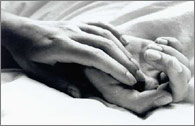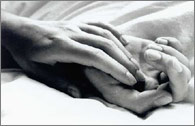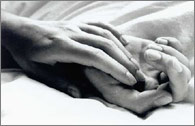"I wonder how it could destroy us, when it was us. We had become this love. We were not lovers, we were love." ("The Powerbook", Jeanette Winterson)

Yet an African American can be black and know that he has the right to walk down the street in all his blackness; an overweight single mother living on welfare can be strolling down a neighborhood not her own league. These people may be stared at in an unfriendly manner, or be attacked by other's evil derogatory remarks. But let's just face it, it is not something that they can hide, or want to hide. For covering up a part of their identity means denying them of their dignity as a human being.
It's a different story if a person is homosexual. All of the women I've spoken to in this article have asked not to have their full name disclosed or pictures taken - it is no co-incidence.
Although Hong Kong lacks the extreme homophobia ingrained in many western societies, discrimination against homosexual lifestyle persists. Such discrimination takes on varied, subtle forms and is particularly addressed in family pressure; reluctance to discuss sexuality in general, and reluctance to see gay relationship as a legitimate choice and issue. The patriarchal society that Hong Kong women are living in, ramified by social status and class, is a breeding ground of the incredible invisibility for women who love other women - an invisibility that shapes how they conceptualize their identity and struggle (or compromise) to change (or hide) their position.
"When I go out with my girlfriend, I have to make up a list of names to tell my mom so that she won't suspect I'm out on a date," says the 26-year-old Lok. "You won't find us holding hands in Causeway Bay or Central (the most crowded and popular shopping districts in Hong Kong). My girlfriend has to call me with her mobile phone at night for fear of being questioned who she is calling" Think that's nuts? Here's more. "Most often she'll have 2 dinners in one night," adds Lok, who is renting a flat with her sister as her parents are in Toronto, Canada, "one after we get off from work and want to spend a little time together like most lovers do, and another one with her own family. Again, it is to avoid being bombarded with questions. It's rather suspicious if she stays out every night instead of heading straight home after work. Who did she go out with? They'll wonder."
It may sound absurd to some, and it leaves one asking - how could this kind of relationship every last?

Josephine couldn't agree with it more.
"I've always believed that it's the obstacles against us that make our relationship 'sacred'."
A 24-year-old marketing executive, Josephine, now single, had spent 5 years of her life with another woman.
"One of the reasons for our break-up was that my ex and I didn't share the same belief. She'd wanted to come out to her family, perhaps she was tired of denying herself and me in front of the people whom supposedly are the closest to her. She expected me to feel the same, or at least consider coming out to my parents. But I couldn't face my own consequence. If it has anything to do with courage, I guess I have not an ounce of that in me."
Due to scarcity, property tycoons have jacked up the price of every inch of land in Hong Kong to become one of the top most exasperatingly expensive commodities in the world. Not surprisingly, most 20- and 30-somethings are still living with their parents. For most lesbians, the only solution to the lack of freedom is to finally break away from their parents' reign. It's the physical distance that can be created, but does that mean they can cut their parents loose after moving out and build a little family of their own?
"When it comes to my family and my lover, I really couldn't strike a balance between the two. It is too difficult, as I am the only child," recalls Josephine.
"After we broke up, I've reflected upon my situation. I was really upset and heart-broken at the time. I was asking myself, ' what could be my worst fear?' Perhaps at worst they'd kick me out or I'd leave and find another place to live. But where do I go from there? I can't bear to even imagine the look on their faces and the broken ties with them afterwards."
For some lesbians, it's important that they come out to their family and friends. Granted, there are successful cases where support and understandings are achieved and everyone is happy. However, it is not a must to come out. According to Queer Sisters (QS), a non-governmental queer women organization in Hong Kong, even though the local gay rights movement is handicapped by the lack of people who are willing to be out and open in public, coming out is not just a personal matter but highly depends on your relationship with your family. A generation ago, people in Hong Kong were still traditional and believe in establishment and institution such as marriage. Weighing your consequences is very important. Even so, coming out doesn't necessarily guarantee an easy ride through your homosexual lifestyle from now on.
"Coming out is never a serious issue for me," Man, one of the core group members of QS, says, "I bring Ki with me or vice versa for every family gathering. Until my elder brother finally said to me, 'you know, I've known some gay men too. It's no big deal. I don't mind at all." I took it to mean me and Ki, and that was the nicest thing I've ever heard. Nonetheless, I'd never consider telling my parents about my sexuality flat out because I'd rather they be comfortable with us and our relationship. The silent acknowledgement comes a lot more precious to us."

"The society is definitely more open and acceptant of us. There're news featuring our stories, our existence and experience are at least acknowledged, - positively or negatively. A virtual gay community is basically just a click away, " said Ki, another core groups member of QS.
The problem that Ki and Man are facing everyday now is the lack of social benefits the way married couples so enjoy. In a way, it is a slap in the face to their decade-long commitment.
They are now living together, and comparing with the pervious years of dating, Ki confesses, "the best part is about having a private space. We no longer need to wait for our holidays to go on a trip in order to sleep on the same bed together."
Karaoke box seems to be the most convenient invention for couples who have nowhere to go during weekends. Sitting in a room of not even 100 sq ft (which is often reeked of dried spilt beer on the carpet), it at least provides a space and a door, and lovers can sit intimately, undisturbed - while letting the hours canter through the afternoon before setting off the neon-blazing-far-into-the -night time.
"We used to go to the karaoke box and sing for hours and hours. Then we'd have dinner and go home. Sometimes we'd go fishing or traipse all over the outlying islands, like the Lantau or Lamma. We've done everything and gone everywhere in Hong Kong; trips to France, Russia, Denmark, Thailand, Taiwan, Malaysia, you name it. But looking back, all we'd ever asked for was a home, some private space where we could be in each other's arms - and rest," muses Josephine.
As women in Hong Kong would continue to use all the smoke and mirrors available to find refuge in a relationship, Lok is unfrazzled, "despite all the sacrifices we have to make, it can only make our love stronger and fonder."
